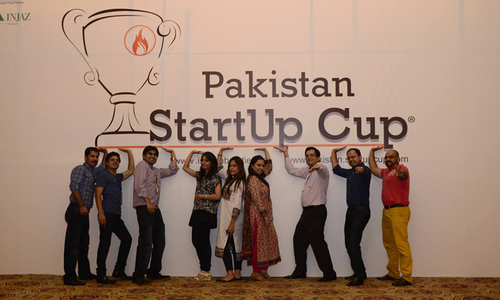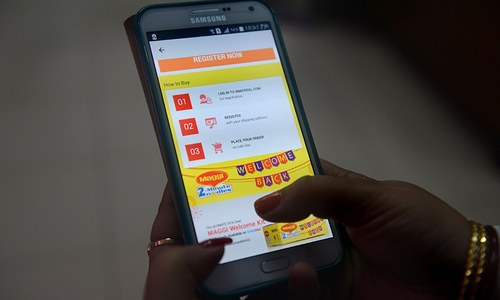These 15 start-up companies are literally reshaping the way Pakistanis work and play.
These young innovative Pakistani minds are increasingly making inroads into technologically advanced ways, resultantly, life is going to get a whole lot easier.
Also read: Now is the right time to invest in Pakistan startups — report
Payload
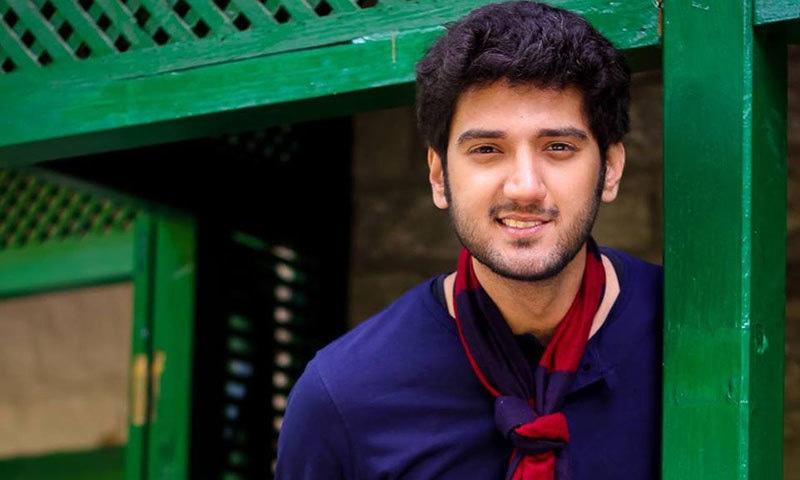
A recent graduate of the Lahore School of Economics, Muhammad Amin, has founded Payload – an app that is introducing Bitcoin technology to Pakistani users. Bitcoin is a type of digital currency used to verify and transfer funds.
With $121 million worth of transactions taking place through Bitcoin every day, the technology is fast becoming a reliable method of transaction for individuals and businesses worldwide.
And the best thing about this system is that it’s foolproof – it cannot be hacked. It's fast and cheap, with minimal transactional fee.
Pakistan is a predominantly cash economy, where many people are not comfortable making payments via credit cards which makes Payload extremely relevant here. The start-up is planning to create awareness drives for university students to educate them about this improved way of transacting.
Healthwire

Want to find a healthcare professional? Check out Healthwire. It is the easiest way to find a doctor.
Founded by partners Hamza Iqbal and Harris Durrani, this mobile app is currently in its developmental phase.
You can, however, book your appointments through their website, and rate your experiences too. It charges a nominal Rs. 1500 monthly subscription fee from medical professionals. While the website currently deals with dentists only, the platform will soon bring various specialists on-board. So far, it has signed up more than 80 dentists.
And the best thing is; only PMDC-certified doctors can register on the website.
Healthwire verifies doctors through their registered numbers. At the moment, the app can segment by gender and location only, but more sub-specialties like cardiology and neurology are set to be included soon, now patients can easily filter doctors according to their needs.
Dockit

While there is no shortage of discount cards available in the market, Dockit is doing something different.
It is offering discounts for up to 12 months, and charging a membership fee of Rs. 999 per year. If it is able to acquire 50,000 users per year, well, you can do the math.
It is currently seeking endorsements from various fashion brands. HSY & Maria B have already agreed to keep Dockit discount cards in their outlets. The start-up has successfully taken 380 vendors on-board.
It will also offer a free voucher magazine for its customers that will cover categories ranging from electronics to apparel, groceries and food. It is now in talks with Oppo and Haier.
As far as competition from e-commerce giants like Daraz.pk and Foodpanda is concerned, Dockit has got that sorted too. It plans to integrate with both and offer their customers an additional discount, if they choose to buy from Daraz.pk/Foodpanda via the Dockit card.
The co-founders are graduates of IBA and FAST and have a pretty comprehensive understanding of the online world of business.
Meezaj

With a catchy tagline 'My Fashion, My Meezaj', Meezaj aims to cut the middleman out and connect fashion designers directly with customers.
Once it is up and running in January, it will serve as a platform for professional growth to talented young fashion designers from various universities who seek to develop their own brand name and business.
Meezaj has already taken nine fresh designers on-board and will also be organising fashion shows in the near future. The National College of Arts and Home Economics College have agreed to become its strategic partners.
You would be surprised to know that Meezaj has already got popular brands like Charcoal, Coogar and Hadiqa Kiani hooked, and will charge them a 10 per cent commission if their products are sold through the portal.
What’s more, these big brands will also sponsor their fashion shows.
As for student designers and new faces, Meezaj will charge a hefty 25-30 per cent commission from them. Meezaj also plans to be an event management company, and will charge a ticket fee from entrants and a registration fee from designers seeking to partake in their events.
ShaadiBox

ShaadiBox provides an online marketplace that connects you with wedding vendors. The website is expected to be up and rolling in a couple of days. It aims to lessen the hassle of booking banquet halls and salons, and that too, on a discount.
While it is currently in talks with Damas and Solitaire as vendors, Mahfooz Jewelers and Hanif Jewelers are already on-board. The platform will charge a subscription fee from jewellers – roughly around Rs. 5,000 – and a commission of 10-20 per cent from wedding halls vendors.
The only competition it faces at the moment is Wedding Planit. But, while the latter is planning and executing the entire shaadi event for its clients, ShaadiBox will simply connect you to the right people. It is founded by programmers from the University of Management and Technology, Lahore.
Chimera

Chimera, which is a Greek word for ‘vision’, offers users a unique virtual dressing room experience.
It already has five to six major clients on-board, including the likes of Charcoal, Splash Dubai, Breakout, Nishat Group and Servis Shoes.
The website uses a 3D model, which allows its customers to rotate an image fully and see how a certain item (shoes/clothes) looks on them. It earns revenue via a deployment fee and is expected to reach break-even within a year.
Virtual dressing rooms are already a big hit on the international retail scene, and Chimera will be a forerunner in bringing the technology to Pakistan.
Auto Genie

Auto Genie is a car repair service which has raised 10 million rupees from PakWheels. The CEO, Hamza Abbas Baksh plans on utilising these funds to tap into the Karachi and Islamabad markets, after Lahore.
This isn’t just a useful service for car enthusiasts, but also for a lot of people who don’t know much about the technical aspect of automobiles, except for how to drive one.
So if something is wrong with your car but you can’t tell what the problem is, don’t worry! Instead of going to the nearest petrol station and getting overcharged, just ring Auto Genie’s hotline and let them do the job for you.
You can order regular car maintenance services, like an oil change and tuning or A/C servicing, now from the comfort of your home.
Edutative

Edutative plans to take all local universities on-board and compete with the likes of LinkedIn for education in Pakistan.
It will offer student reviews and ratings for various Pakistani universities and host student societies online for users to discuss issues pertaining to their specific field of study.
Currently, it is running on investment from friends and family. The founders of Edutative are Economics and Business Majors. Out of the 180 universities in Pakistan with 220 campuses across the country, 40 universities are currently collaborating with them.
The website will also offer online tests for SAT, MCAT and ECAT, along with various other test papers, and will generate evaluation reports for students to monitor their progress.
Home Foodies
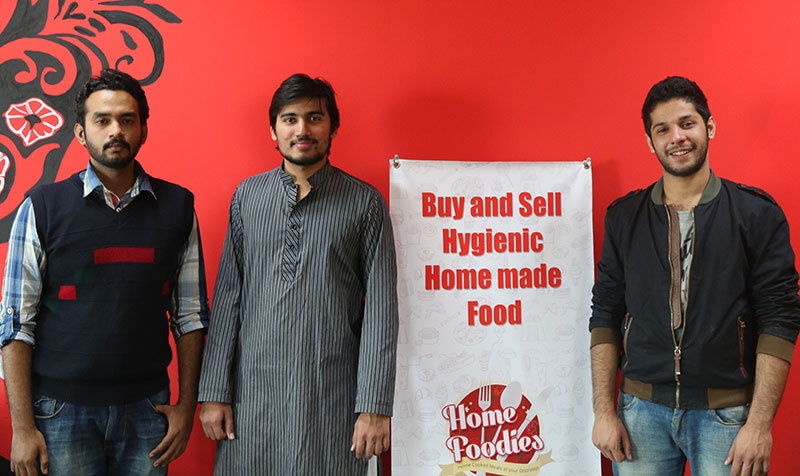
Home Foodies aspires to be a platform to enable housewives to set up their own food businesses from within the comfort of their homes. It will charge a 20 per cent commission per order.
They have already signed up the famous Aunty Samina (Samina's Kitchen) and Sir Kaiser (La Masion). Although, it currently gets 40-50 orders a month, the volume is expected to increase exponentially. The website targets hostelites and office workers at the moment.
It has a strict quality assurance system where the owners of Home Foodies personally go and visit each kitchen before signing up a client. It plans to take over the Lahore market within the next six months.
Smart Devices

This is perhaps the first IoT (Internet of Things) start-up in Pakistan that aims to sell smart devices directly to consumers. It is currently in the prototype phase and considers Effective Labs and Apple Homekit to be its competitors.
The founder says that by 2020, your home devices will consume more data than your mobile devices. While it currently only has 10 beta users, international giant Infotech has already shown interest in buying the company.
The start-up has also made many of Super Asia's devices WiFi-enabled and has developed a browser extension for Chrome and Opera so that your home devices can be operated, but the technology still needs to be certified. The company recently won a ‘Smart Home’ award at the IoT awards hosted by Telenor.
Rabbit Drop
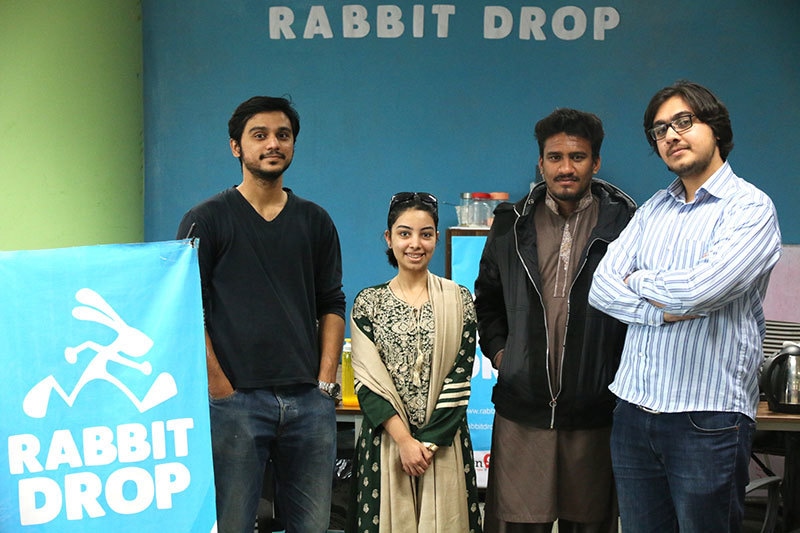
Rabbit Drop helps deliver grocery anywhere in Lahore within 60-90 minutes. Its name comes from a twist on the words 'Rapid Delivery'.
The start-up earns revenue via commissions from retailers. While it currently has only 70 registered users, it is expected to expand its user base once the website is officially launched.
One of the founders has a degree in Modelling and Simulation Engineering, while the other has studied Computer Engineering.
Patari

Patari is simply the Gaana (song) of Pakistan and seeks to become a hub for the local music scene.
While Tune.pk and Zemtv.com have done the same for Pakistani dramas and talk shows, there was hardly a platform where one could get high-quality Pakistani music and SoundCloud's song remixes didn't make the situation any easier.
This is where Patari comes in. It boasts of more than 50,000 registered users with 750,000 tracks streamed per month. Its mobile app has been downloaded by 20,000 people already.
Khalid Bajwa, the founder of Patari, claims to have created the most viral campaign in Pakistan for his mobile app by using innovative social media engagement techniques.
Beauty Hooked

Beauty Hooked allows you to find and book salons and parlours near your location and avail exclusive discounts for their services.
Labelled a beauty with brains, Sahr Said, the CEO of Beauty Hooked, aimed to create an online platform for Pakistani women to compare the services of various beauty salons.
The website currently offers discounts in over 30 salons in Lahore and plans to sign up a lot more in the next few months. What's more, all of its subscribers are top-tier salons.
Mango Baaz

Put simply, MangoBaaz is the Mashable of Pakistan. It is an online channel for news, information and entertainment that highlights stories for Pakistani youth that are not picked up by mainstream media.
It portrays a very lively, and fun-loving image of Pakistanis to the international audience. The website also plans to redefine digital advertising in the country by analysing user data, and using it to generate stories that are more meaningful and connect brands with an engaged audience.
Ges-Drive

Ges-Drive is a start-up that creates a gaming experience for special children. These children can play video games through it via simple gestures. It is a proven fact that video games relieve chronic stress.
The Al Umeed Rehabilitation Association (AURA) Karachi is using the prototype to test how this might work. The system costs $850 per package and will be sold for $1,200 per piece to hospitals and medical institutions.
Acrobatic At Home was one such competitor that developed a shoulder pad but it wasn't commercialised.
Ges-Drive aims to tap recreational centers like Sindbad, Wonderland in Lahore, and Arena in Karachi. The founders are Computer Science graduates from FAST Karachi and are putting their genius to good use.


